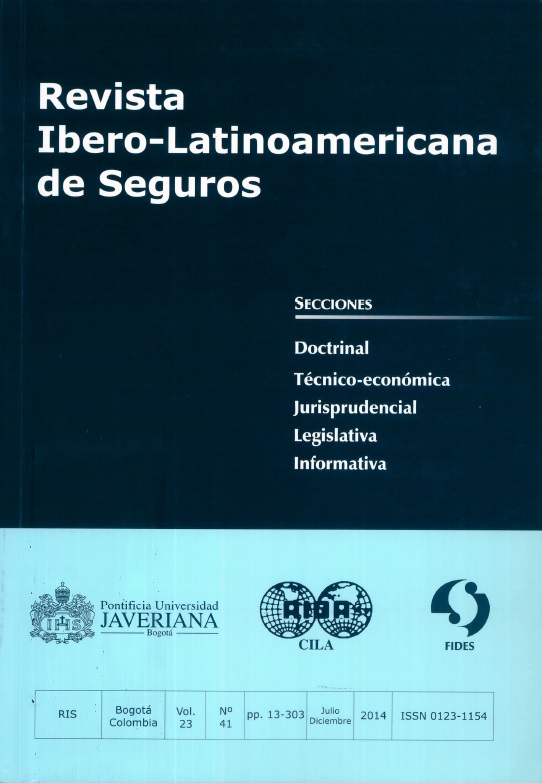Abstract
El contrato de seguro a pesar de tener regulación especial de protección a los consumidores financieros en la ley 1480 de 2011, estatuto general de protección a los consumidores, incorporó normas que, de manera directa algunas y de manera indirecta otras, generan un gran impacto en él y en el sector asegurador en general.
Uno de los principales cambios que introduce el Estatuto del Consumidor radica en el deber de información que deben tener las aseguradoras con los tomadores, cuyo incumplimiento genera efectos bastante drásticos en el contrato. Otro de los principales efectos está dado por la asignación de facultades jurisdiccionales a las Superintendencia Financiera de Colombia, lo cual sin duda ha cambiado el procedimiento, las cuantías y las causas de los procesos que las aseguradoras afrontaban tradicionalmente.
Las cláusulas abusivas, y el aparente conflicto con las normas especiales de protección, la modificación del valor asegurado por parte del asegurador, la comercialización de salvamentos, y el aseguramiento de la Responsabilidad Civil serán otros de los temas a tratar.
This journal is registered under a Creative Commons Attribution 4.0 International Public License. Thus, this work may be reproduced, distributed, and publicly shared in digital format, as long as the names of the authors and Pontificia Universidad Javeriana are acknowledged. Others are allowed to quote, adapt, transform, auto-archive, republish, and create based on this material, for any purpose (even commercial ones), provided the authorship is duly acknowledged, a link to the original work is provided, and it is specified if changes have been made. Pontificia Universidad Javeriana does not hold the rights of published works and the authors are solely responsible for the contents of their works; they keep the moral, intellectual, privacy, and publicity rights.
Approving the intervention of the work (review, copy-editing, translation, layout) and the following outreach, are granted through an use license and not through an assignment of rights. This means the journal and Pontificia Universidad Javeriana cannot be held responsible for any ethical malpractice by the authors. As a consequence of the protection granted by the use license, the journal is not required to publish recantations or modify information already published, unless the errata stems from the editorial management process. Publishing contents in this journal does not generate royalties for contributors.


